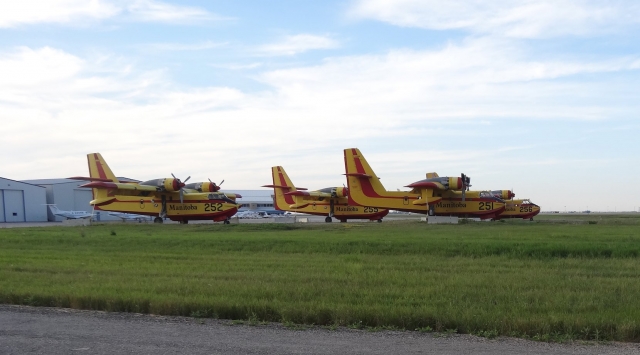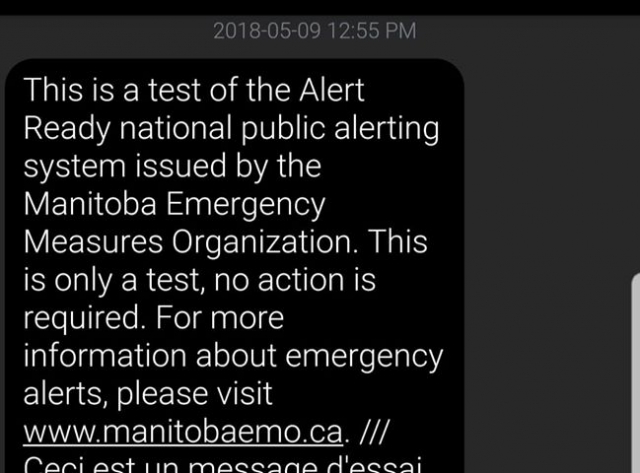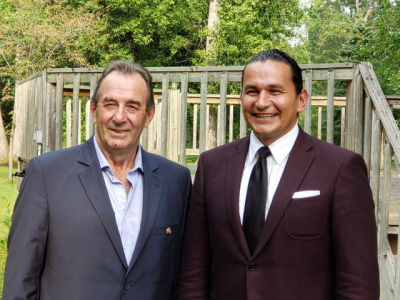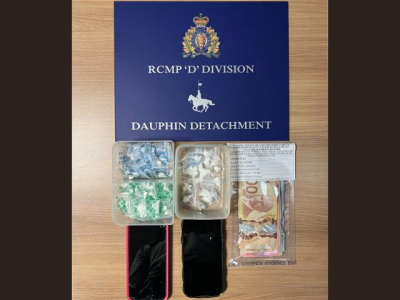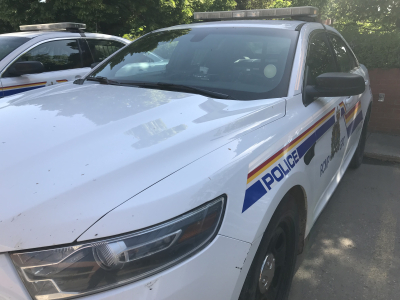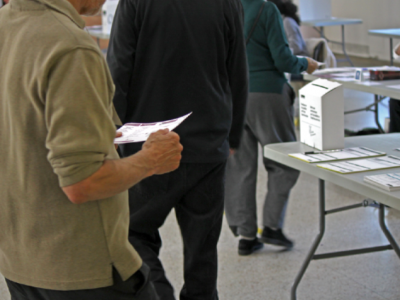 NewsNow
NewsNow
Be prepared for tougher impaired driving laws next time you’re thinking about driving after having a couple of beer.
The provincial government has introduced amendments to The Highway Traffic Act that would adopt more severe sanctions for drunk drivers.
Drivers under the influence of alcohol who register a ‘warn’, suggesting a blood alcohol content between .05 and .08 would face a new monetary penalty of at least $200 for a first offence, escalating to at least $400 for a third or subsequent offence.
They would also face a vehicle impoundment of between three days for a first offence and 30 days for a third or subsequent offence. Anyone caught a third or subsequent time would also be required to drive with an ignition interlock for a year.
Adding up all the administrative sanctions and penalties, the minimum cost for a ‘warn’ range driver would be $2,600 for a first offence to around $3,200 for a third or subsequent offence.
For first time drunk drivers that register a ‘fail’ on a test, police would have the discretion to impose a new monetary penalty of at least $500 as well as a mandatory ignition interlock of one year rather than proceeding with a criminal charge.
The minimum cost for a ‘fail’ would be over $3,300. All monetary penalties would be established by regulation.
Last year, 73 people were killed and 442 were seriously injured in traffic collisions in Manitoba. Drunk driving accounted for 32 percent of those killed and six percent of those injured. Already this year, 28 people have lost their lives because of a drunk driver.
- Details
- Contributed by Josh Sigurdson
Thelma Krull's remains have been found southeast of Winnipeg.
Police officers announced today that the 57-year-old woman was a victim of a homicide.
Her remains were found by a hunter on Oct. 27 in a wooded area in the rural municipality of Taché, southeast of Winnipeg.
DNA testing has confirmed the remains were Krull's.
She had disappeared on July 11, 2015, in the morning when she left to go for a walk.
No arrests have been made and police are again asking for any information that may help with the investigation.
- Details
- Contributed by Josh Sigurdson
Yesterday was the final day of the Association of Manitoba Municipalities convention.
Nicole Chychota had a great time at the convention, she says they made some good connections and she’s excited for the year ahead for the RM of Dauphin.
Chychota says a lot of the discussion centred on the road and bridge program. The premier and his cabinet attended a ministerial forum to discuss concerns.
The investigating in Canadian Infrastructure Program is the replacement for the road and bridge program, and it was one of the biggest points talked about.
There are four areas the program will focus on. Those areas are public transit, green infrastructure, culture and recreation, and rural and northern communities.
- Details
- Contributed by Isaac Wihak
The Manitoba Government and Babcock Canada Inc. have entered an agreement to provide services for the suppression of wildfires, including the use of water bombers.
The transaction is the result of a competitive request for proposal process initiated earlier this year.
Infrastructure Minister Ron Schuler says, “Our government is committed to protecting Manitobans from wildfires and that’s what this agreement delivers. It will ensure faster response times, enhanced safety and a superior aircraft maintenance program. It will make Manitoba’s wildfire suppression system even better.”
There was some concern that if this happened the water bombers would be allowed to leave the province and wouldn’t help Manitoba if needed.
Schuler responded to that concern by saying, “The aircraft will always serve Manitoba’s needs first, and may only be deployed outside the province with the government’s consent and direction.”
Babcock has over 30 years of fixed and rotary wing aerial firefighting experience throughout Europe.
For Manitoba, it will work in partnership with Air Spray, an experienced, safe and effective provider of fire-suppression services with long-term contracts in a number of Canadian provinces and the United States.
Through long-term and existing mutual assistance agreements, neighbouring jurisdictions have access to Manitoba’s water bombers, pending availability and approval from the Manitoba Wildfire Program.
In turn, Manitoba has access to other aircraft for fire-suppression emergencies.
- Details
- Contributed by Isaac Wihak
The Life Saving Society, Manitoba branch has released their yearly update for water-related fatalities.
Christopher Love, Water Smart Coordinator for the Life Saving Society Manitoba branch, says one death is too many.
The mission of the Life Saving Society, Manitoba Branch is to prevent water-related deaths and injuries. To do that there has to be constant education and a constant reinforcement of safety messaging.
The Parkland area’s 5 deaths, between 2009 and 2015, are 10th among areas in Manitoba. Winnipeg, Thompson and North Central, and Eastern Manitoba are the top 3 areas.
The long-term average of water-related fatalities per year in Manitoba is still at 22 and hasn’t shown any signs of changing.
- Details
- Contributed by Isaac Wihak
- Details
- Contributed by Josh Sigurdson
Dauphin’s MRI is installed and going through final inspections and safety reviews.
Prairie Mountain Health says MRI appointments will be booked for early December. If you have an MRI appointment scheduled in Brandon in the next few weeks you might be contacted to have your appointment moved to Dauphin.
If your appointment is moved to Dauphin someone from the Dauphin Regional Health Centre MRI team will contact you with your new appointment date and time and anything else you need to know.
- Details
- Contributed by Josh Sigurdson
Reports of what kind of winter we should expect have been all over the place.
That's exactly what kind of winter we will have, both extremes will occur.
Brad Rousseau, a meteorologist with the Weather Network, says our area will be a battle zone, with intrusions of warm Pacific air followed by intrusions of cold Arctic air.
Rousseau expects us to see about normal to a little below normal amounts of snowfall and precipitation this winter.
To figure out this prediction they look at how the ocean and atmosphere interact, they also look at past years that have similar traits to what the weather is like now and they look at how those winters developed.
- Details
- Contributed by Isaac Wihak
Final results have come in of the 24 Hour Giving Challenge.
The fundraiser supporting the Dauphin and District Community Foundation raised a total of $42, 567.
For every $5 that was donated, the Winnipeg Foundation added $1 and the Manitoba government also added $1, up to a maximum of $2,000 from each. So, every $5 turned into a $7 donation.
Kit Daley explains where the money raised goes.
“It goes into our Undesignated or Unrestricted fund. Which means the board will interview each applicant and get information on the project that they are applying for a grant for. And then the board will meet to discuss all the projects and who will benefit and what is the lasting legacy of the project and decide what we can support and with how much money.”
The donations are turned into grants that fund infrastructure, art, culture, new initiatives, sports, city beautification among other projects.
Last year the challenge raised $34,730 for Dauphin. Since 1996 the foundation has granted out one million dollars.
To find out more about how the foundation invests their money click here to go to their page.
- Details
- Contributed by Josh Sigurdson
Another emergency test is taking place this afternoon.
An Alert Ready public awareness test message is scheduled for 1:55.
Similar to the test that took place in May, the test message is being sent through radio, cable and satellite TV broadcasters, web feeds and to compatible wireless devices.
This will be the second test of the Alert Ready system this year. The first one took place back in May during Emergency Preparedness Week.
- Details
- Contributed by Josh Sigurdson
It’s day three, and also the last day, of the Association of Manitoba Municipalities convention.
Jack Bremner is the Parkland district director on the AMM, and he says the lack of cell coverage in rural areas will be a topic covered. He also says conservation is another important topic municipalities are bringing up.
“Our municipality, the one that I sit on the council for, one of our big concerns is the conservation districts being amalgamated with districts like Turtle River. We’re two different types of conservation districts and that’s going to be very difficult to amalgamate. All the municipalities in the Parkland sent a resolution to the minister objecting to it. We just got a letter back that they are going to leave as is, and force us to amalgamate.”
Bremner shares why he’s excited about this year’s convention.
“One of the things I’m really looking forward to is 48 percent of the people that are going to be there are new. They are new to municipal politics, there’s more women now in the municipalities representing. And I'm really looking forward to seeing the new people and be talking to them and seeing what their views are.”
The three day meeting is taking place in Winnipeg.
- Details
- Contributed by Josh Sigurdson




